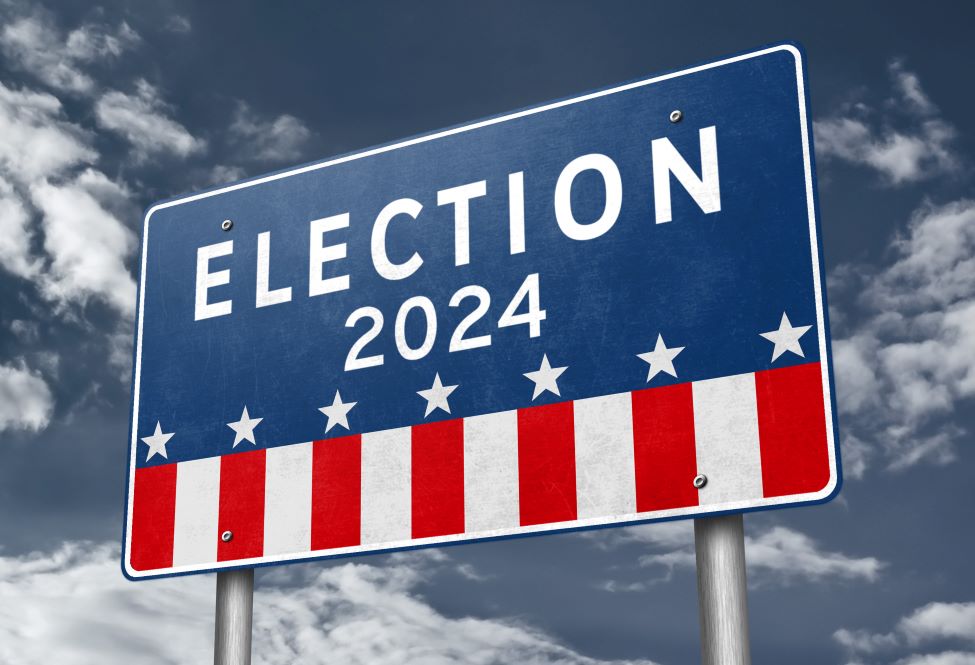FAU/Mainstreet Poll: Trump Edges Harris in Georgia and North Carolina

2024 presidential race is in its final 2 months
A new poll from the Florida Atlantic University Political Communication and Public Opinion Research Lab (PolCom Lab) and Mainstreet Research USA reveals a tight U.S. presidential race in the swing states of Georgia and North Carolina.
The recent polls conducted in Georgia and North Carolina reveal a highly competitive landscape for the upcoming election, offering significant insights into voter preferences, media consumption and electoral trust.
Former U.S. President Donald Trump holds a small lead over U.S Vice President Kamala Harris 47% to 45% among likely voters in Georgia. And in North Carolina, Trump narrowly leads Harris 48% to 47%.
In the North Carolina gubernatorial race, Democratic candidate Josh Stein is leading Republican Mark Robinson 50% to 39%, with 7% of likely voters undecided.
“The close distribution of support between the two major party candidates suggests that Georgia and North Carolina remain highly competitive,” said Kevin Wagner, Ph.D., professor of political science and co-director of the PolCom Lab. “Among likely voters, the undecided population, though small, could still play a crucial role in determining the outcome, particularly in a tight race such as this one.”
Trust in Election Process: Majority Confident, but Division Remains
While the race in both states is tight, the way voters feel about the process remains positive, with 61% in Georgia indicating they find the electoral process trustworthy (33% very trustworthy and 28% somewhat trustworthy). In North Carolina, 56% find the process trustworthy (33% very trustworthy and 23% somewhat trustworthy).
Campaign Ad Visibility: Mixed Results in Ad Wars
As Trump and Harris fight for visibility through their respective ad campaigns, each candidate can claim more visibility in one of the states. In Georgia, Harris/Walz ads are slightly more visible (31%) than Trump/Vance ads (23%); while in North Carolina, Trump/Vance ads are slightly more visible (29%) than Harris/Walz ads (26%).
News Source Preferences: Traditional Media Dominates, Digital Gains Ground
Likely voters in both states continue to utilize cable news as their main source of information. Of those polled, 41% in Georgia and 39% in North Carolina seek this traditional format, with 28% in Georgia and 25% relying on national news. More Republicans prefer cable news’ sources (53% in Georgia, 49% in North Carolina); as compared to Democrats (35% in both Georgia and North Carolina); and Independents (28% in Georgia; 32% in North Carolina).
Online news sources are preferred by 19% in Georgia and 18% in North Carolina; however, 30% of voters in Georgia and 25% in North Carolina under the age of 50 indicated they use social media and websites over all other forms of media.
“The divide in how voters get their news reveals just how fractured political media has become,” said Carol Bishop Mills, Ph.D., professor of communication and co-director of the PolCom Lab.
The polls also reveal other implications of findings regarding media landscape, nationalization of the race, as well as ad visibility and voter engagement:
- The dominance of cable news underscores the importance of television advertising and appearances for candidates for older and more conservative voters.
- The significant share of online sources, particularly for younger voters, indicates that campaigns must maintain a strong digital presence.
- Low reliance on local news (8% in Georgia, 12% in North Carolina) suggests voters are focused on broader narratives, impacting campaign strategies.
- The near-even split in ad visibility indicates intense competition, with potential voter fatigue due to high ad saturation.
The polls were conducted Sept. 5 and 6 among registered voters in Georgia (647 respondents) and North Carolina (692 respondents). The surveys employed a mixed-mode methodology, combining Interactive Voice Response telephone interviews with an online panel to ensure comprehensive coverage. Respondents could complete the survey in English or Spanish. To achieve representativeness of the voting population, weights were applied for gender, race, education, and past vote. Party identification was determined by asking respondents which party they most identify with. A likely voter screen was applied based on self-reported likelihood to vote. While a traditional margin of error cannot be assigned due to the mixed methodology, a poll of this size would typically have a margin of error of approximately ±3.9% for Georgia and ±3.7% for North Carolina at the 95% confidence level, with higher margins for subsamples. As with all surveys, these polls are subject to various sources of error, including sampling, coverage and measurement error.
-FAU-
Latest Research
- FAU Named a National Center of Academic Excellence in Cyber ResearchFAU has been recognized as a National Center of Academic Excellence in Cyber Research by the National Security Agency and its partners in the National Centers of Academic Excellence in Cybersecurity.
- FAU Seeks Participants for Parkinson's, Aging and Mind-Body StudyFAU is recruiting participants for an exciting research study aimed at understanding the effects of Parkinson's disease and normal aging on cognitive performance, exercise ability and the mind-body connection.
- Busted! Engineers Revolutionize Fraud Detection with Machine LearningA new breakthrough outperforms traditional methods by generating accurate fraud labels from large, imbalanced datasets, reducing cases needing further inspection, crucial for Medicare and credit card fraud.
- Photobomb: Shark Cam Captures Ocean Encounter With a Great WhiteIn an unprecedented underwater encounter, a nurse shark equipped with a camera tag has captured footage of a great white shark off the coast of Boynton Beach, delighting FAU marine biologists.
- Engineers Bring Sign Language to 'Life' Using AIFAU engineering researchers have developed an innovative interpretation system using AI, which translates American Sign Language gestures into text in real time with 98.2% accuracy.
- Report: Supply Chain Index Declines as Tariffs Hit EconomyThe economy could be headed for a downturn as the supply chain starts to contract amid tariff policies and rising uncertainty, according to researchers at Florida Atlantic University and four other schools.






